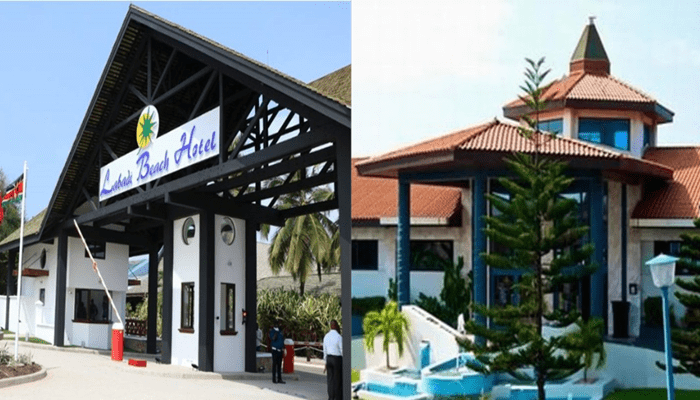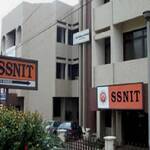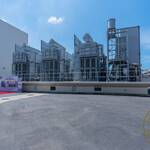The Social Security and National Insurance Trust’s (SSNIT) strategic overhaul of its investment portfolio plan has been endangered by opposition to the sale of 60% shares in four hotels forcing the Trust to cancel the offloading of shares.
The plan aims to significantly increase its allocation to fixed income investments while reducing its stakes in equities and alternative investments.
This comprehensive restructuring of SSNIT’s investment strategy aims to strengthen the Trust’s financial stability and enhance returns for stakeholders, aligning with the organization’s long-term goals and the evolving economic landscape.
Organized Labour, GMA declare strike
However, Organized Labour and Ghana medical Association (GMA) declared a strike action starting today in opposition to SSNIT’s intended sale of a 60% stake in the four of its hotels.
ICU not taking part in strike
On the other hand, the Industrial and Commercial Workers Union (ICU) urged its members to stay away from the strike since the Union is not taking part in the industrial action.
38.3% increase in fixed income
According to SSNIT’s Asset Allocation Policy, the Trust plans to raise its investment in fixed income from the current 16.7% to 60% over the next five years, marking a substantial 38.3% increase.
In the medium term, from 2023 to 2026, SSNIT aims to boost this investment to 48.5%.
The Trust also intends to increase its holdings in corporate bonds from 0.4% to 2% in the medium term, and to 4% in the long term.
Corporate lending, currently at 6.1% in 2023, is projected to rise to 9% for both the medium and long term.
Short-term treasury investments are expected to double from 3.6% in 2023 to 6% in both the short and long term.
Tradable long-term treasury investments, currently at 6.2%, will be increased to 15% in the medium term and 17% in the long term.
In addition, SSNIT plans to incrementally increase its student loan investments from 0.3% to 0.4% in the medium term.
Non-tradable government bonds, which currently have no allocation, will be introduced with a 12% stake in the medium term, rising to 11.5%.
The Trust is also set to venture into municipal bonds, starting with a 0.1% investment in the medium term and increasing to 0.5% in the long term.
Government lending, currently at zero, is projected to reach 4% in the medium term and 6% in the long term.
18.3% reduction in equity holdings
Conversely, SSNIT plans to reduce its equity holdings by 18.3%, from 49.3% in 2023 to 26%.
This portfolio will be further reduced to 38% over the next three years.
Listed equities, which currently stand at 13.5%, will be increased to 20% in both the medium and long term.
However, unlisted equities, which have a 35.8% stake, will be decreased to 18% in the medium term and further reduced to 11% in the long term.
20% reduction in real estate properties
The Trust also intends to scale down its investments in alternative portfolios from 34% to 14%, a reduction of 20%.
This will be brought down to 13.5% over the next three years.
Investments in real estate properties will also see a significant reduction, from 30.5% to 10% in both the medium and long term.
In private equity, overseas investments, and US Dollar allocations, SSNIT plans to increase its investment from 1% to 3% in the medium term, and further to 3.5% in the long term.
Expenditure on ETI and Corporate Social Responsibility (CSR) will be reduced from 2.5% to 1% in the medium term, and to 0.5% in the long term.
SSNIT cancels sale of 60% stake in hotels
Following opposition to the offload of shares with Organized Labour and Ghana medical Association (GMA) declaring strike actions starting today, SSNIT terminated its intended sale of a 60% stake in the four of its hotels.
A statement from SSNIT issued came hours after Rock City Hotel, the successful bidder pulled out of the transaction due to the massive opposition by stakeholders.
The statement signed by the Board Chair of SSNIT, Elizabeth Ohene, said the process has been terminated.
SSNIT assured pensioners, contributors and the public of “its commitment to managing the affairs of the Trust prudently for the sustainability of the pension scheme.”
The National Pensions Regulatory Authority (NPRA) which earlier ordered suspension of the process later approved the sale.
The NPRA’s later decision was made known on the floor of Parliament by Mr Ignatius Baffour Awuah, Pensions Minister, on Thursday, July 11, 2024.
GH₵233.8m debt locked in the hotels
Five out of the six hotels the Social Security and National Insurance Trust (SSNIT) is planning to offload 60% of shares to a private company have not paid the debt owed SSNIT to date.
They have not paid dividends in the past five years.
Dividends are often expected by shareholders as a reward for their investment in a company.
The hotels can’t fund maintenance capex
With the exception of Labadi Beach Hotel, none of the hotels can fund maintenance capex, and the additional periodic significant investment capex needed.
Labadi GH₵48.1m dividends in 5 years
Documents revealed that only Labadi Beach Hotel has paid a total of GH₵48.1 million (GH₵48,128,821) in the last five years.
The rest—La Palm Royal Beach Hotel, Elmina Beach Resort, Busua Beach Resort, Ridge Royal Hotel, and Trust Lodge—did not pay any dividends during this period.
More disturbing is the fact that SSNIT made total payments, including shareholder loans of GH₵233.8 million in respect of La Palm, Elmina, and Busua.
However, the Trust has made no return on equity in the form of dividends on this amount, and none of the loans have been serviced.
La Palm Hotel
The Director General disclosed that La Palm had made losses in 11 out of the past 14 years.
According to him, “the hotel hasn’t been profitable, has not paid us any dividend and again, they are struggling. Average return is -4.2% in the period preceding the decision to divest our 60% stake.
Elmina Beach Resort
The situation of Elmina, is not different. The facility had made losses in nine out of the last 14 years, had paid SSNIT no dividend, the investment put in had failed to earn the Trust any return.
The average Return on Equity for Elmina Beach Resort is -4.8% for the period 2010 to 2017.
Busua Beach Resort
The Director General reported that no dividends had been received, rather losses had been recorded in most of the years, and returns negative.
The average Return on Equity for Busua Beach Resort was -31.7% for the period 2010 to 2017.
Ridge Royal Hotel
The predication of Ridge Royal Hotel is similar to the other hotels. No profits had been reported, rather it had made losses in nine years of its operation.
“The average Return on Equity for Ridge Royal Hotel was -33.1% for the period 2016 and 2017 and has had a negative shareholders equity position since,” Mr Osafo-Maafo said.
He revealed that “the hotel owes us GH₵44 million in the investment that we put into the hotel. And none of that has been serviced. So again, just put that into perspective.
Labadi Beach Hotel
The hotel had made losses in two out of the last 14 years , had paid dividends in the last two years, but the returns had been low.
According to the Director General, the average Return on Investment for Labadi Beach Hotel was 1.7% (2012-2017), averaging 5.2% for the period 2012 and 2022.
- Have we reaped the whirlwind? - 19 April 2025
- Fighting cocaine with the cross - 18 April 2025
- Galamsey, Cocaine: of truths, errors and the priest - 18 April 2025




